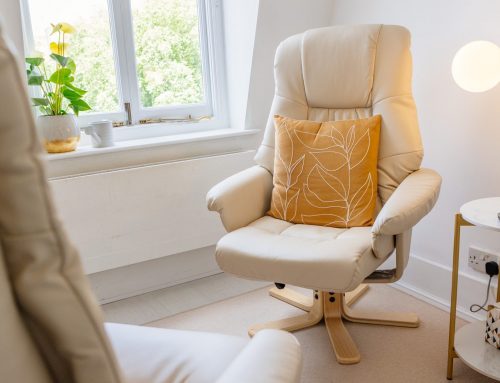Seasonal Affective Disorder (SAD), commonly known as seasonal depression, often strikes us during the autumn and winter months, when the daylight hours are shorter. This condition can affect anyone. Symptoms may include persistent low mood, decreased interest in activities, irritability, and fatigue. Recognising the causes and the right coping mechanisms is essential for managing this condition effectively.
The main culprit behind SAD is believed to be reduced sunlight during winter. The lack of natural light can disrupt the body’s circadian rhythm, or internal clock, leading to feelings of depression. Additionally, shorter days can result in lower serotonin levels, a neurotransmitter influencing mood, and higher levels of melatonin, a hormone regulating sleep. These changes can cause the lethargy and sadness commonly associated with SAD.
It is important to note that feeling tired and sad during the shorter days is a common experience, and you’re definitely not alone. In fact, over a third of people report feeling low moods during autumn and winter! It is quite a natural response to the change in seasons.
Coping with Seasonal Affective Disorder often involves lifestyle adjustments to alleviate its effects. Increasing exposure to natural light is one of the most effective strategies. Spending time outdoors during the daylight hours can help reset your circadian rhythm and boost serotonin levels. Regular physical activity is equally beneficial, as exercise can improve mood at every level by releasing endorphins, the body’s natural feel-good chemicals. Consider taking a nice morning walk when the sun is up and grounding yourself in the present.
In addition to lifestyle changes, seeking professional help can be crucial for managing SAD. Talking therapies can provide valuable support and strategies for coping with negative thoughts and feelings.
Other coping strategies include:
- Hanging out with friends or loved ones
- Eat a balanced diet rich in fruits, vegetables and whole grains to support your overall well-being
- Maintain a regular sleep schedule to help regulate your body’s internal clock
- Practice mindfulness or meditation to reduce stress and improve mood.
- Limit alcohol and caffeine as these substances can negatively impact your mood and sleep patterns
- Keep yourself occupied with activities you enjoy
- Break tasks into smaller, manageable steps to avoid feeling overwhelmed
By incorporating lifestyle changes, utilising light therapy, and seeking professional help when necessary, individuals can navigate the winter months with greater ease and maintain a better quality of life. Psychotherapy is beneficial for everyone, regardless of their mental state. You don’t need to be at your lowest point to gain from therapy. Just as exercise strengthens the body, therapy fortifies the mind, offering valuable tools and insights for overall well-being. Remember, you’re not alone, and with the right strategies and support, overcoming the low mood that arises during this time of year is more than possible.
HARVEST THERAPY
44 Russell Square,
London WC1B 4JP
United Kingdom
Phone Number:
020 8962 6247
email: info@harvest-therapy.co.uk
HARVEST SOCIAL MEDIA:







Leave A Comment
You must be logged in to post a comment.